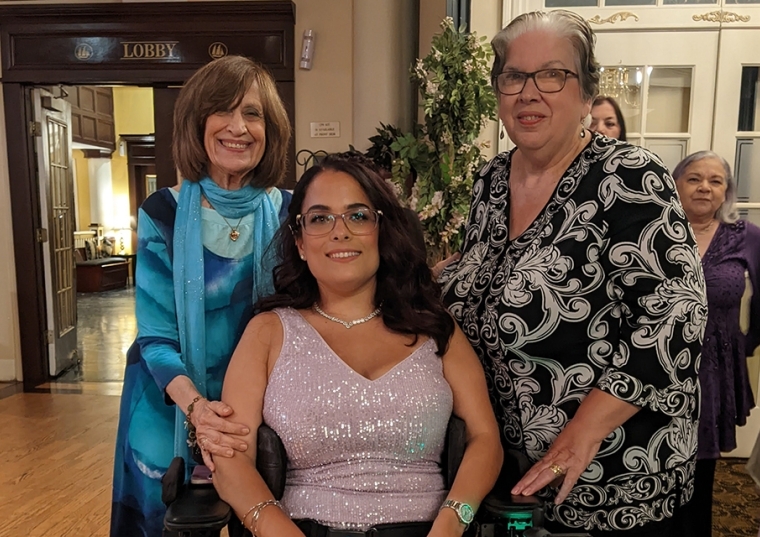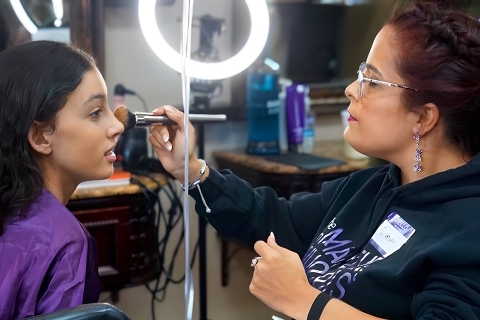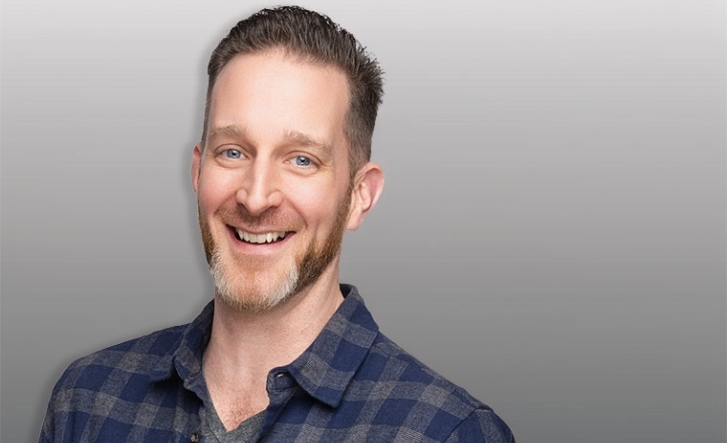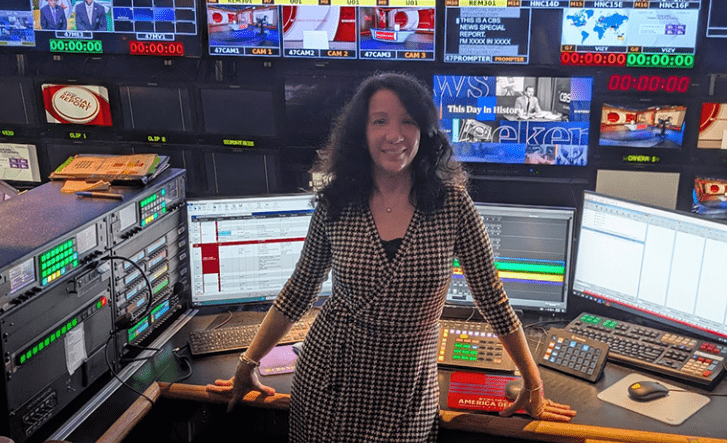Empowering Beauty: Alumna Shines in Work with The Makeup on Wheels Foundation
When Stephanie Debes was born five months premature with spastic quadriplegia cerebral palsy, doctors informed her parents that she was expected to live less than a week. Twenty-nine years later, she is the force behind The Makeup on Wheels Foundation, a Staten Island, NY-based nonprofit that seeks to empower those with disabilities.

“When students learn about history 500 years from now, I want to be the one in the history books they are learning about, that I changed how disabled people are viewed.”
Meet Stephanie Debes
Established in 2020, the foundation supports the potential of all people who are disabled, using Ms. Debes’ entrepreneurial experience in the beauty industry as inspiration. As of May 2024, the foundation had assisted more than 3,000 disabled people, earning Ms. Debes a “20 Under 40” leadership award from the Staten Island Economic Development Corporation (SIEDC), the borough’s leading business development group.
Ms. Debes is a New York State-licensed esthetician, a special-effects makeup artist, and a disabilities awareness advocate.
Overcoming Barriers: How Stephanie Debes Transformed Challenges into Opportunities
Spastic quadriplegia cerebral palsy is the most severe form of cerebral palsy, a group of conditions that affect movement and posture and are caused by brain damage before birth. Children with spastic quadriplegia cerebral palsy usually cannot walk and are more likely to have multiple associated conditions, including speech difficulties and seizures. Children born with the condition require lifetime care.
The condition impacts all four of Ms. Debes’ limbs and limits her to a wheelchair. Undeterred, she enrolled at St. John’s University’s Staten Island, NY, campus, graduating with a Bachelor of Science degree in Hospitality Management. She said her time at St. John’s was challenging, but also transformational.
“I didn’t have many places to choose from because of my disability,” Ms. Debes said. “But when I came to St. John’s to check it out, I said this is the school. It was so close-knit and family oriented.”
She added, “When I did advocate for accessibility, St. John’s went above and beyond, accommodating me with anything I needed. I am extremely grateful.”
Among her mentors at the University was Paulette Hughes, then a professor of English and Business Writing and now Adjunct Associate Professor, Division of Special and Opportunity Programs, Higher Education Opportunity Program (HEOP). Professor Hughes challenged Ms. Debes and her classmates to craft a model for their ideal business venture. Stephanie opted for a mobile beauty service.
“Stephanie wowed us with her final project,” Professor Hughes recalled. “I like to think our classroom experience had a little something to do with her ongoing journey, but I believe her mind and heart were moving in that direction for a long time. Her dream keeps getting bigger and bigger.”
Ms. Debes said the project idea was born from a trip she and her father took more than a decade earlier.
“I’ve always been something of a girlie girl,” she joked. “When I was eight, my father took me to Poland for intense physical therapy. My dad had to bribe me to do the therapy. He said if I finished, I could have anything I wanted. I chose makeup.”
“I put everything on. I did not know colors or shades.” Ms. Debes recalled. “My dad said I looked beautiful, and it helped me forget about life on wheels.”
Impact and Outreach: The Makeup on Wheels Foundation
Determined to overcome her disability, at age 25 Ms. Debes established The Makeup on Wheels Foundation. More than just a mobile beauty supplier, the nonprofit attempts to empower all those with disabilities, believing that everyone deserves an opportunity to flourish regardless of ability.
The foundation offers traditional spa services, including beauty consultations, bridal and prom preparation, and event planning. Ms. Debes is in demand as a motivational speaker, and the foundation even offers makeup artist instruction for those who would like to pursue Ms. Debes’ passion.
All proceeds from the services support the foundation’s mission. Since 2020, the foundation has donated adaptive bicycles and driving equipment to people with disabilities; donated concert, comedy show, and sporting event tickets; covered some medical expenses for cancer patients; and even paid for dancing lessons for people with disabilities.
The foundation also sponsors bowling events, restaurant outings, and other events. Its goal is to serve the needs of 5,000 people with disabilities by December 2026.
“Stephanie exemplifies dedication, compassion, and talent,” SIEDC President and Chief Executive Officer Mike Cusick said. “We congratulate Stephanie for her significant contributions to improving the quality of life in our borough and creating opportunities for all individuals to thrive."
Ms. Debes promotes foundation events on her Facebook, Instagram, and TikTok pages. When possible, she hires from overlooked populations, including members of the autistic community because, she said, “I know what it’s like to be turned away.”
Ms. Debes said her work establishing the foundation has convinced her of the potential in all people.
“Some able-bodied people are far from normal,” she joked. “We all have our issues. But if we can all come together, my goal will have been accomplished.”
How Stephanie Debes Inspires Others
Ms. Debes bristles at the idea of being an inspirational leader. She politely finds it condescending.
“It sometimes bothers me that people have misconceptions of disabled people,” she said. “Frequently, people say, ‘You went to St. John’s University. I find that so inspirational.’ I know people do not mean that in a rude way, but why wouldn’t I have gone to college? Disabled people are a lot more capable than people think.”
However, in pushing for greater recognition of the accomplishments of disabled people, Ms. Debes will gladly accept the title of role model. “It brings me joy when I hear someone say, ‘I put my hair in a ponytail today because of you and what you taught me,’” she said. “So in that sense I am happy to be a role model.”
“But when are we going to have an acknowledgement of the potential of disability empowerment?” she continued. “When students learn about history 500 years from now, I want to be the one in the history books they are learning about, that I changed how disabled people are viewed.”




